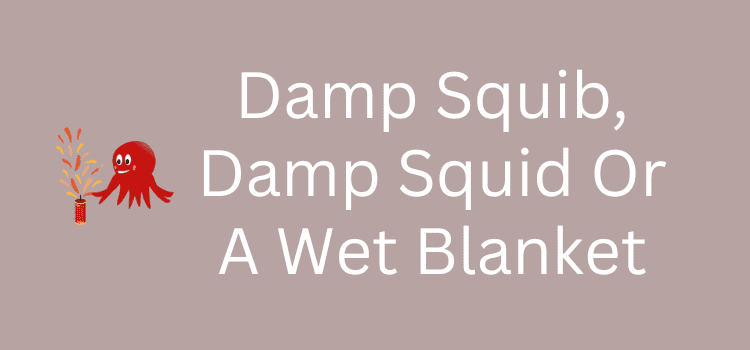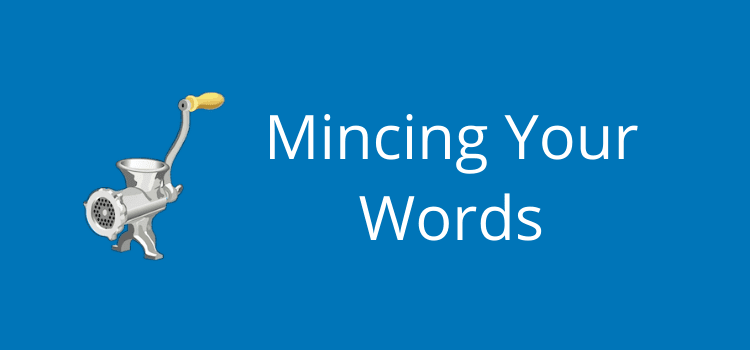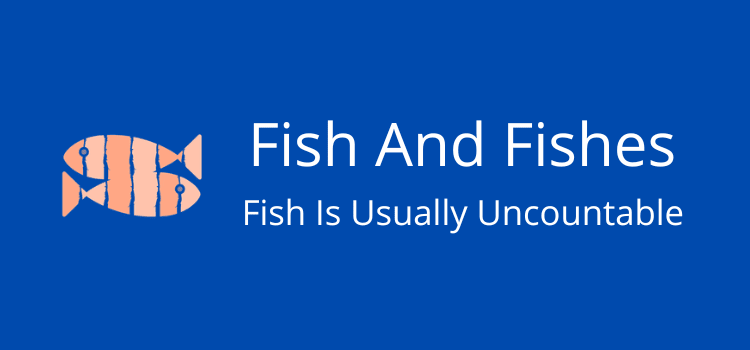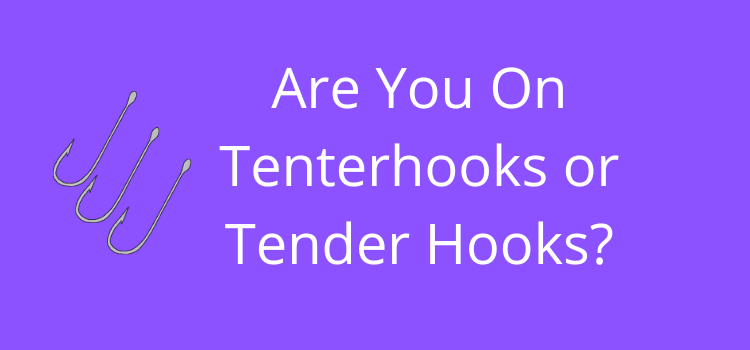
A damp squib, and the variation damp squid, is a metaphor. We use it figuratively to describe an event or situation that is disappointing or less impressive than expected.
The correct form is a damp squib. But perhaps because of the ease of pronunciation, a damp squid is now not uncommon to see or hear.
Another metaphor, a wet blanket, is similar in expressing disappointment. But it is not always interchangeable because it often refers to someone who spoils other people’s fun.
As with all idioms and metaphors, it always pays to check that you use them correctly.
What is a damp squib?

The expression has its origins in fireworks.
A squib is a small firecracker, often red, that burns a fuse before exploding.
Unlike most other fireworks, its only purpose is to make a loud bang.
Originally from China, they date back to 200 BC when they were made using a bamboo tube.
Interestingly, the Chinese name for firecrackers (baozhu) means exploding bamboo.
However, much later, when firecrackers became popular in England and Europe, they were made using a thick paper tube to encase the explosive powder.
Due to being made from paper, they were susceptible to water or any form of moisture.
If the firecracker became moist, it would fail to explode correctly, if at all.
Therefore, if a squib became damp for any reason, it would probably end in a disappointing result with no bang.
Is a damp squid acceptable?
Yes, but probably more in speaking than in writing.
As with many expressions, times and usage changes mean that what was once deemed incorrect is okay to use now.
A good example of this trend is champ or chomp at the bit.
However, you can see from the usage graph below that squib is still the most common form.

For writers, it’s one of the many little traps that can occur when you rely on spoken English.
I doubt many readers would notice, but using the correct form is always better.
Is a wet blanket the same?
In a way, yes.
Both expressions, a wet blanket, and a damp squib, share the same sense of a disappointing result, a letdown, or perhaps an anticlimax.
But the origin of the metaphor is someone throwing a wet blanket on a fire to extinguish it.
So it differs in the sense that it indicates that perhaps someone, rather than something, is responsible for a poor result.
For example, you could say that the boss put a wet blanket on the party or that the party was a damp squib.
Examples in use
Both metaphors are easy to use.
Here are some example sentences to help you understand how to use them.
You often need to decide if someone or something caused the less-than-satisfying result.
Examples of a damp squib.
With all the problems with the sound equipment, the concert turned into a damp squib.
I was anticipating a climactic ending to the movie, but it turned out to be a damp squib.
The product launch went well, but the new phone quickly became a damp squib due to design and production faults.
Examples of a wet blanket.
He’s such an annoying micromanager and always puts a wet blanket on any new ideas.
Unfortunately, the wet and stormy weekend weather put a wet blanket on the music festival.
A strike by airline workers delayed us for two days and really put a wet blanket on our short vacation.
Oh, don’t be such a wet blanket. You have to come to the reunion, and I’m sure you’ll enjoy meeting old friends.
Combining the two metaphors.
The launch piqued everyone’s interest but ended up being a damp squib due to a wet blanket of technical issues that prevented a demonstration.
The inclement weather put a wet blanket on the music festival, turning it into a damp squib.
Our camping trip was a damp squib after David’s constant complaining put a wet blanket on all our ideas.
Conclusion
If you are in any confusion about these metaphors, think about a squid.
It’s a cephalopod (not a fish) with eight legs, like an octopus, that lives in the ocean. So a squid is always wet and can’t be damp.
But you can imagine dipping a firecracker into a bucket of water and then trying to light the fuse.
Similarly, if you throw a wet blanket on a campfire, that’s pretty much the end of the fire and the fun of camping.
Unlike some other metaphors and idioms like fell and foul swoop, these two are easy to use and get right.
Related Reading: Bated Breath And Baited Breath Always Cause Confusion
Share This Article



It irritates me when people use these metaphors incorrectly. Thanks for helping soothe my troubled breast!